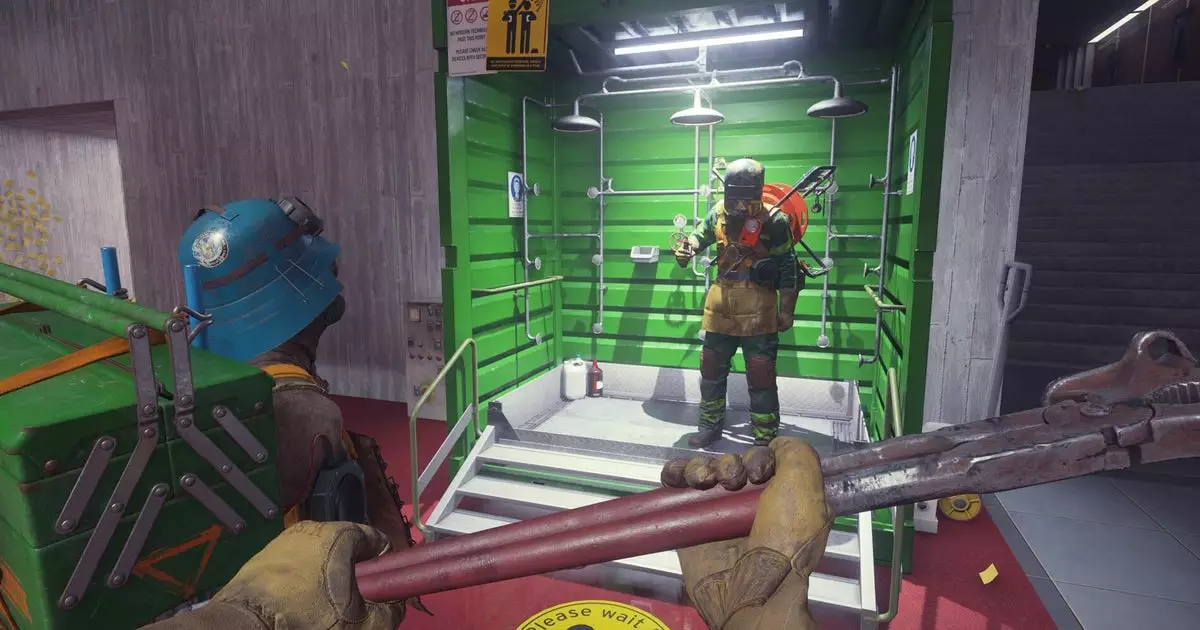Remedy Entertainment has garnered a reputation for crafting compelling narratives within intricate worlds. Their latest announcement marks a significant shift in their creative approach, as they venture into the realm of multiplayer gaming with a title that promises to blend cooperative mechanics with the surreal atmosphere of their beloved “Control” series. The upcoming game, FBC: Firebreak, is not just a shift in genre; it represents a pivotal evolution in Remedy’s diverse gaming universe.
With FBC: Firebreak, Remedy seeks to embrace a fresh format—three-person co-op shooter gameplay. While their previous successes were anchored in single-player experiences with rich storytelling, the developers are stepping into an arena where teamwork, strategy, and quick decision-making will be paramount. The move towards a multiplayer structure also indicates an attempt to adapt to changing gaming preferences, where many players now seek social engagement and collaborative play.
FBC: Firebreak has a unique premise: players take on the roles of first responders for the Federal Bureau of Control, tasked with confronting extra-dimensional threats within the eerie, shape-shifting environment of the Oldest House. It creates an intriguing juxtaposition of action and horror, blending the elements of fast-paced shooting games with the atmospheric dread characteristic of Remedy’s storytelling.
One of the standout features highlighted is the game’s unique approach to powers and abilities, likened to an Overwatch-style setup with a twist. Rather than typical abilities that can be unleashed freely, players wield “ultimates” that come with an element of unpredictability. Game director Thomas Puha’s analogy of these abilities as “a jaguar in a box” underscores the necessity for cautious application; players not only have to consider how to apply their powers effectively but also manage the inherent risks. This adds a layer of tension and strategy, fostering a balance between thrill-seeking and tactical execution.
Remedy’s commitment to user-friendly gameplay is equally noteworthy. Puha emphasizes that FBC: Firebreak is designed as a pick-up-and-play experience, disassociating it from the burdensome wait-times and complicated setups often seen in other multiplayer games. The focus is on immediate immersion and enjoyment rather than requiring players to dedicate excessive time to preparation. This reflects a growing trend in the gaming industry—striving to create accessible gaming environments that prioritize enjoyment over grinding.
Although FBC: Firebreak marks a detour from traditional narrative-driven experiences, it maintains connections to the lore established in the Control universe. Set after the events of its predecessor, the game endeavors to contribute meaningfully to the ongoing story while adopting a lighter narrative framework. The intention is to present a unique perspective that reveals the Federal Bureau of Control from angles previously unexplored in solo gameplay.
This shift in storytelling style—moving towards a greater focus on world exploration rather than character-driven narratives—presents an exciting opportunity for both new and returning players to engage with the universe. While the writing may not mirror the intensity of previous titles, it offers the chance to discover new layers of that familiar yet bizarre environment.
Additionally, as a part of Remedy’s strategy, FBC: Firebreak is designed to evolve beyond its initial release. However, the developers are cautious about labeling it a game-as-a-service, linking it instead to the age-old concept of player progression and narrative richness. The commitment to providing a continuously engaging experience, free from “FOMO” or relentless content churn, is refreshing in a landscape where many games vie for players’ undivided attention.
As Remedy embarks on this new adventure, the gaming community awaits the balance between the enchanting yet mysterious world of Control and an engaging multiplayer experience. With FBC: Firebreak, Remedy aims to weave a tapestry that not only caters to cooperative gameplay but also deepens the mythos of an already captivating universe. Fans can only hope that their vision remains intact—a deeply immersive experience that draws them back into the uncanny world they’ve built, without falling into the traps of over-commercialization and uninspired gameplay.


Leave a Reply